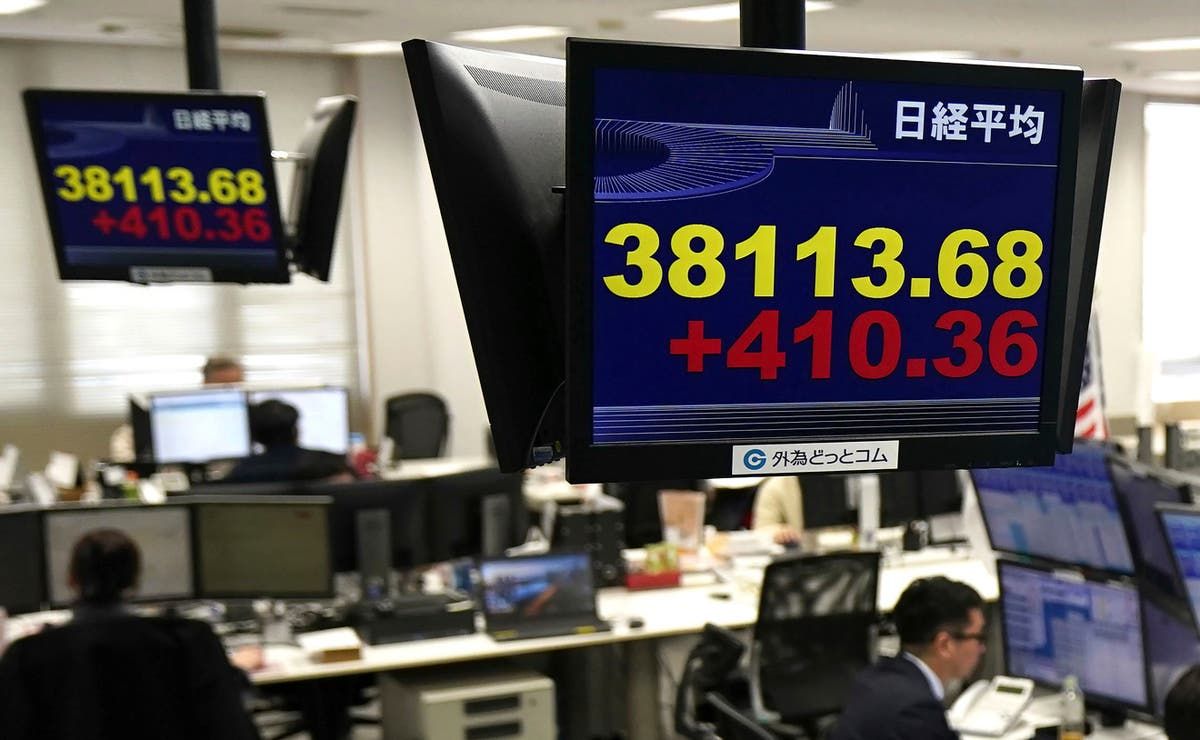Japan has fallen to the world's fourth-largest economy as government data showed it fell behind the size of Germany in 2023.
The figures highlight how the Japanese economy has gradually lost its competitiveness and productivity while the population shrinks as Japanese people age and have fewer children, analysts say.
Japan fell from the second-largest economy behind the United States to third in 2010 as China's economy grew. The International Monetary Fund had predicted Japan's fall to fourth place.
Comparisons between countries' economies look at nominal GDP, which does not reflect some different national conditions, and is in dollar terms. Japan's nominal GDP amounted to $4.2 trillion last year, or about 591 trillion yen. Germany's, announced last month, was $4.4 trillion, or $4.5 trillion, depending on currency conversion.
For the final October-December quarter, the Japanese economy contracted at an annual rate of 0.4%, down 0.1% from the previous quarter, according to Cabinet Office data on real GDP. During the year, real GDP grew by 1.9% compared to the previous year.
The country has experienced two consecutive quarters of contraction, meaning it has fallen into recession.
A sushi chef prepares a dish at the Toyosu market on Monday in January. 29, 2024, in Tokyo
(Copyright 2024 The Associated Press. All rights reserved)
Real gross domestic product is a measure of the value of a nation's products and services. The annual rate measures what would have happened if the quarterly rate lasted one year.
Both Japan and Germany built their economies through strong small and medium-sized businesses with solid productivity. Unlike Japan, Germany has shown a solid economic foundation supported by a strong euro and inflation. The weak yen is also a drawback for Japan.
The latest data reflects the reality of a weakened Japan and will likely result in Japan having a smaller presence in the world, said Tetsuji Okazaki, an economics professor at the University of Tokyo.
“Several years ago, Japan had a powerful automobile sector, for example. But with the advent of electric vehicles, even that advantage is affected,” he stated.
The gap between developed countries and emerging nations is narrowing, and India will surely overtake Japan in nominal GDP within a few years, Okazaki said.
To solve the country's labor shortage problem, immigration is an option. But Japan has been relatively reluctant to accept foreign labor except as temporary guests, prompting criticism about a lack of diversity and discrimination.
Another option is robotics, which has been gradually implemented, but not enough to compensate for the country's chronic labor shortage.
Historically, Japan was touted as “an economic miracle,” rising from the ashes of World War II to become the second-largest economy, only after the United States, and maintaining that position throughout the 1970s and 1980s.
Entrepreneurs behind companies that emerged from humble beginnings, such as Soichiro Honda of Honda Motor Co. and Konosuke Matsushita of Panasonic Corp., epitomized the hard work behind Japan Inc.
Made In Japan gained a reputation for being cheap but offering quality, and some products became coveted around the world. Maybe now are the good old days.
Many factors remain to be determined, Okazaki said.
“But looking ahead to the next two decades, the outlook for Japan is bleak,” he said.









